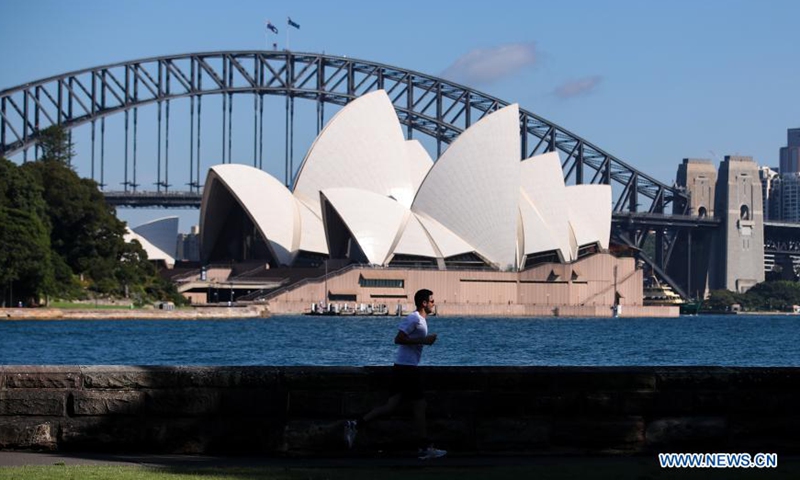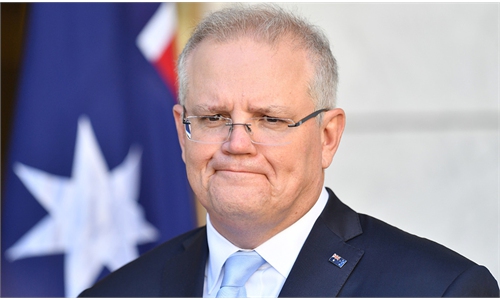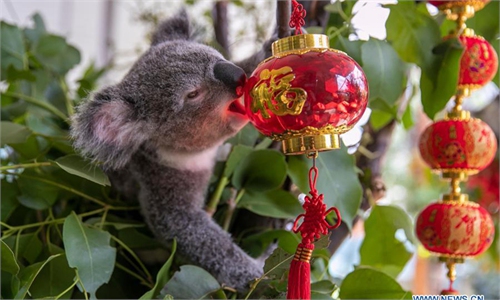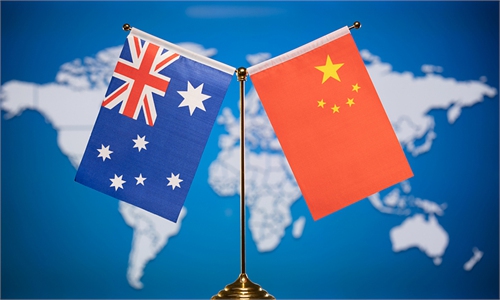
A man runs in a park opposite the Sydney Opera House in Sydney, Australia, on Feb. 26, 2021. Restrictions in the Australian state of New South Wales (NSW) will further ease from Friday as vaccination rolled out and "no local case" status continued. (Xinhua/Bai Xuefei)
Australia posted better-than-expected fourth quarter GDP at 3.1 percent, in part due to its booming iron ore trade with China, Chinese analysts said.The country's GDP grew by 3.1 percent for the quarter ending December on a quarter-on-quarter basis, while the economy contracted 1.1 percent on the year.
Still, the fourth quarter performance beat consensus forecasts for a 2.5 percent increase.
Australian Prime Minister Scott Morrison declared on his twitter on Wednesday that Australia's comeback from the pandemic "continues to gather pace" and Australia's fourth quarter performance is better than all the G7 countries and the Organization for Economic Cooperation and Development (OECD) average.
Despite its ongoing hostility toward China, Chinese analysts pointed out that demand from China strongly supported the Australian economic recovery and Australia has much to thank for its status as the most China-dependent economy among Western countries and it was that allowed Australia to pull itself out of a deep V-shaped recovery that resembles China's.
Ning Tuanhui, a research assistant with the China Institute of International Studies, said the swift recovery was due to Australia's relatively effective containment of the COVID-19 pandemic and in part due to a strong rally of iron ore demand and prices through much of the second half of 2020 from China.
"A recovery in the Chinese economy for the second half of the year has definitely benefited the Australian economy," Ning told the Global Times. "The huge increase in iron ore exports to China played a major role dragging the Australia economy forward."
Ning noted that while the two countries had a series of trade frictions last year, iron ore, Australia's top foreign exchange grossing export item, has not been affected.
Global Times



